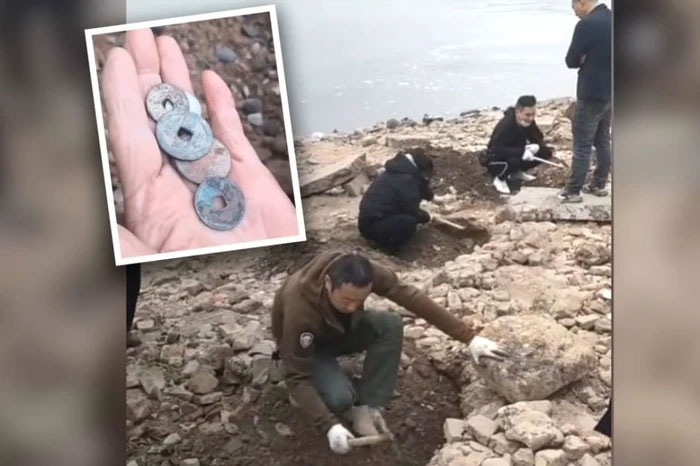These days, residents of Gan Zhou City, Jiangxi Province, China, are flocking to excavate artifacts from two dry riverbeds exposed due to drought.

Dry riverbed.

Residents rush to excavate artifacts.
The Gan Zhou government stated that the prolonged hot weather has caused several rivers and lakes in the city to dry up, including the Zhang River and Gong River. This has revealed many ancient relics. However, city officials emphasized: “Any form of research and excavation of relics conducted spontaneously by individuals is considered a violation of the law.”
Despite this, many residents continue to go “artifact hunting” along the two river sections. During this time, the atmosphere there is quite lively. One man, holding a piece of muddy yellow metal, exclaimed: “This item probably dates back to the Song Dynasty.”
About a month ago, a stone stele inscribed with characters believed to date back to the Qing Dynasty (1636-1911) was also discovered in the dry Zhang River. The stele bears the inscription: “Point east of the southern avenue of Gan Zhou.” Experts believe the stele marks the boundary of the ancient road in Gan Zhou and holds significant historical value for the city’s research.
Currently, the Gan Zhou city government is continuously urging residents to submit everything they find at the ancient sites to the authorities. Those who do not comply may face penalties.


















































